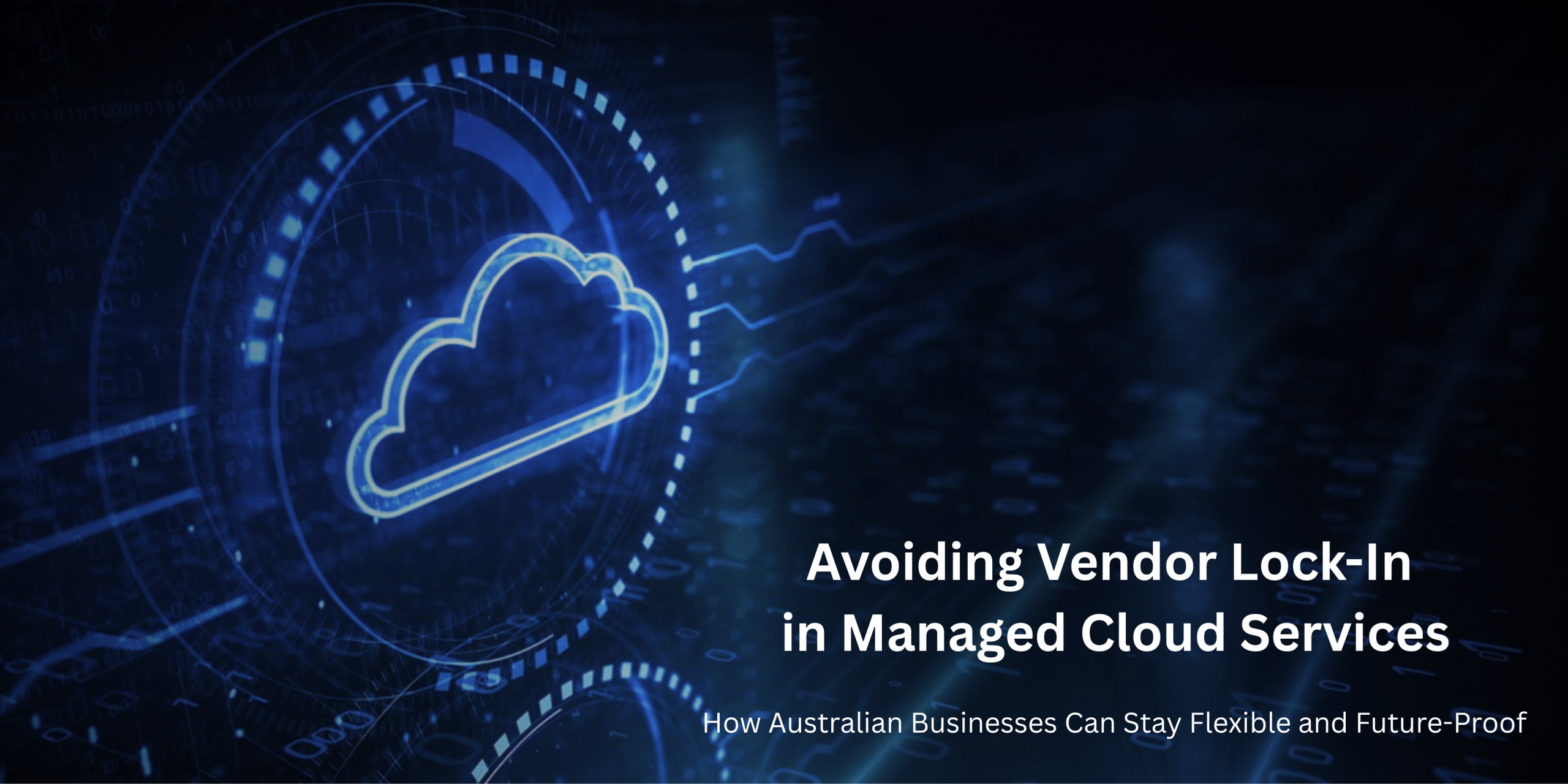As more Australian companies adopt cloud and managed services to streamline operations, many overlook a critical risk vendor lock-in. Being tied to one cloud based service provider can limit flexibility, increase costs over time, and make future upgrades more difficult. At CSPro, we help businesses stay in control of their IT systems while enjoying the full benefits of the cloud. Here’s how to avoiding vendor lock-in while choosing the right cloud computing managed services for your business:
WHAT IS VENDOR LOCK-IN?
Vendor lock-in occurs when a customer depends heavily on a single managed service provider or cloud platform, making it costly or difficult to switch. This happens mainly due to the:
- Complex contract terms
- Limited data portability
- Incompatible system
- Exclusive use of proprietary
In the case of cloud based managed services, this could mean you’re stuck with outdated technology, limited support options. Rising costs all of which can hinder your organization’s ability to grow and adapt.
WHY FLEXIBILITY MATTERS FOR THE AUSTRALIAN BUSINESS?
For Australian businesses, having flexible IT systems is essential to staying competitive in a changing landscape. With different rules in each state, rapid shifts in technology, and the risk of unexpected disruptions like natural disasters, companies need solutions that can adapt fast. At CSPro, we deliver cloud and managed services designed to give you that freedom. Our cloud computing managed services allow you to grow, adjust, or change direction without being tied to one setup. Whether you’re opening a new office, updating your systems, or responding to industry changes, CSPro helps you stay prepared, responsive, and in control. With ever-changing compliance regulations and growing cybersecurity risks, having the freedom to choose from top-tier cloud application providers or shift between cloud network providers is a competitive advantage.
WAYS TO AVOID VENDOR LOCK-IN:
Accept open technologies and standards:
When you use cloud computing managed services that follow open standards and common platforms (like Linux, MySQL, or APIs), it becomes much easier to move your data or software to another provider if needed. For example: if your systems are built using widely supported tools instead of one company’s special software, you won’t get stuck. You’ll have more freedom to switch vendors, upgrade your services, or add new tools without starting over.
Confirming data mobility:
When using cloud based managed services, always check if you can download or move your data in standard formats like CSV, PDF, or XML. This is important because if you ever want to change your provider or upgrade your system, having your data in common formats makes it easy to transfer without losing anything or starting from scratch. For example: If you ever move to another cloud application provider, having your data in standard formats means you won’t lose important information.
Insist on clear exit strategies:
When choosing a managed service provider, always check what will happen if you decide to stop using their services. A trustworthy provider will clearly explain this in the contract. It should include how you can cancel the service, how your data will be returned, and if there are any costs involved. There should be no surprise fees or delays if you want to move to another provider.
Go multi-cloud where possible:
Instead of using just one cloud based service provider for everything, it’s smarter to use different providers for different tasks like one for storing files, another for backups, and another for email. This way, if one service has a problem or goes down, the rest of your work keeps running smoothly. You’re not stuck or fully dependent on one company.
Review Contracts Before Signing:
Before agreeing to any cloud and managed services, take time to read and understand the contract. Ask the provider to include terms that:
- Allow you to leave without big penalties
- Require them to help you move your data if you switch
For Example: If you’re using a cloud managed IT service for records, your contract should clearly say how and when you can exit and that the provider will help transfer your data to another platform safely.
Check How Much You Depend on One Vendor:
Every few months, review which cloud computing service providers you use and how much your business depends on them. This helps you spot any risks before they become problems. For Example: If you’re using one vendor for your email, data backup, and billing system you’re highly dependent. Consider splitting services across multiple cloud application providers to stay safe.
Explore Open-Source Platforms:
Open-source tools are software platforms that anyone can use and customize. Unlike proprietary tools from a single vendor, open-source platforms give you more freedom and flexibility. For Example: Instead of using a paid email platform that only works with one vendor, you might use an open-source system like Thunderbird that can connect with different cloud network providers.
Teach Your Team About Vendor Lock-In:
Everyone involved owners, managers, IT staff should understand the risks of relying too much on one provider and know what steps to take to avoid it. For Example: Your IT team might attend training to learn how to manage data exports or test new cloud based managed services. This way, your business always has options.
Keep Local Systems as a Backup:
While cloud systems are great, having the ability to run some software on your own local computers (on-premises) gives you a backup in case of internet issues or cloud problems. For Example: If your internet goes down and your clinic can’t access the cloud. You can have local software for appointments or billing means your team can keep working until the connection is restored.
Test Before You Commit:
Before fully switching to a new managed service provider cloud computing solution, test it with a small team or for a limited task. This helps you see if the service truly fits your needs. For Example: Try using a cloud based service provider just for backups at first. If the service is reliable, you can expand and use them for more things like data storage or email later.
Selecting the Right Managed Cloud Partner:
When choosing a provider, don’t focus solely on cost. Look for cloud computing service providers that:
- Understand your industry’s unique needs
- Are transparent with pricing and services
- Have strong local support in Australia
- Provide flexible, scalable infrastructure
- Offer robust cybersecurity and compliance frameworks
CLOSING WORDS:
Avoiding vendor lock-in is about having choices. With the right strategies and the right partner, you can enjoy all the benefits of cloud and managed services without sacrificing control.
At CSPro, we make sure your business stays flexible, secure, and future proof. Get in touch today to explore smarter, more adaptable IT solutions for your growing business.




